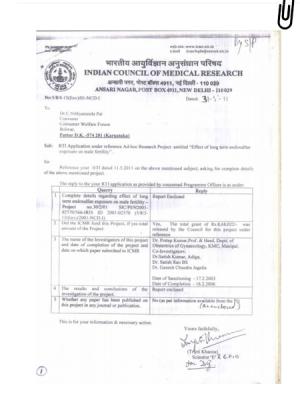Endosulfan Added to Trade "Watch List"
United Nations chemical experts have recommended endosulfan to be included in the Rotterdam Convention’s Prior Informed Consent procedure.
United Nations experts have recommended that two pesticides - endosulfan and azinphos methyl, one severely hazardous pesticide formulation - Gramoxone Super and three industrial chemicals - perfluorooctane sulfonate (PFOS), its salts and precursors; pentaBDE commercial mixtures; and octaBDE commercial mixtures be added to a trade “watch list” under a UN-backed treaty aimed at helping poorer countries more effectively manage potentially harmful imported substances.
This decision was taken in the Seventh Meeting of the Chemical Review committee held in Rome from 28th March to 1st April ' 2011. The recommendations will be forwarded to the fifth meeting of the Conference of the Parties (COP 5) to the Rotterdam Convention in June 2011.
The Rotterdam Convention on the Prior Informed Consent (PIC) Procedure for Certain Hazardous Chemicals and Pesticides in International Trade is designed to ensure that hazardous chemicals do not endanger human health and the environment but inclusion on the list is not a recommendation for an international ban or severe restriction of the use of the substance.
This is not the first time Endosulfan has been recommended to the Conference of Parties. It was also recommended for the fourth meeting of COP. COP 4 was not yet able to reach consensus on whether or not to list the chemical in Annex III. However, in its decision, COP 4 encouraged Parties to make use of all available information on endosulfan, including the draft decision guidance document, to assist others, in particular developing countries and countries with economies in transition, to make informed decisions regarding the import and management of endosulfan and to inform other Parties of those decisions.
Reports
July 01, 2017
EPW Report: Endosulfan - Centre in Denial
April 20, 2011
Endosulfan the Kerala Story
Multimedia | Audio/video
July 10, 2017
Endosulfan National Seminar at Kasaragod - Concord'12
The Endo Ban Tracker
Story
Press Releases
Letters
Updates
Presentations
Disclosed: Lies about endosulfan
July 02, 2017
Best Practices
Judgements
Others
Down to Earth

July 17, 2017

July 17, 2017

July 17, 2017

July 17, 2017

July 17, 2017

July 17, 2017

July 17, 2017

July 17, 2017

July 17, 2017

July 17, 2017










Share this article